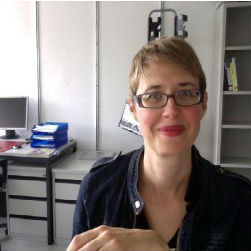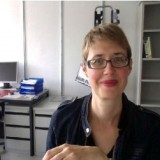Baleisis Audra, Dr.


Please give us a personal quote or a quote of a famous person (e.g. of Albert Einstein) that describes you and your life/work.
“Everybody is a genius. But if you judge a fish by its ability to climb a tree, it will live its whole life believing that it is stupid.” Albert Einstein
Please describe your job in only one sentence and tell us what the most important goal of this work is.
I am responsible for the Advancement of Young Researchers and Women Researchers through professional development, educational innovations, and addressing the importance of diversity and work/life balance. The most important goal for me is to lessen the social, cultural, educational and resource barriers that might prevent young researchers from having a healthy, fulfilling career during their time in PlanetS.
How did you get into this research/work field?
I intended to be a research astronomer, and was in the middle of my PhD thesis work on explosive nucleosynthesis in massive stars, when I realized that I liked learning about science much more than I like doing science research. I was miserable. I finally decided to switch into the Science Education program at the same university and to concentrate my PhD thesis on the culture of communication in science and university science teaching methods. It is a much better fit to my personality and interests and I’m lucky that I found a way to this new career.
What would be the greatest discovery you would like to see in your life time?
As a social scientist, I think one of the greatest advancements would be to increase people’s understanding of the extent and destructive power that systems of privilege, bias, and discrimination have in the world. The strengths and experiences of more than half of the world’s population are often ignored, and our world is a worse place because of it.
You work for the NCCR PlanetS. What do you think will the NCCR enable you to do you couldn’t do without it?
I know about diversity related to American science and universities. But working with PlanetS members, I am learning about a variety of other cultures’ approaches (and successes and failures) to diversity in science. There are different ways that women, for instance, participate in academic science across Europe, related to the cultures of their home countries. This will greatly enrich my knowledge of the variations in the “women in science” question and hopefully allow me to help others have more subtle and deep discussions surrounding that topic.


Comments are closed.